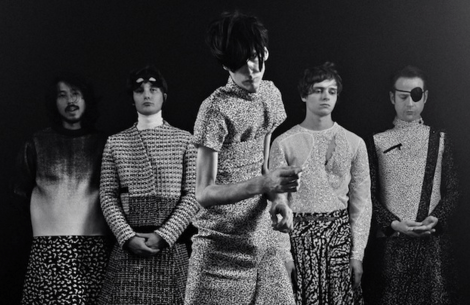Search
To search for an exact match, type the word or phrase you want in quotation marks.
A*DESK has been offering since 2002 contents about criticism and contemporary art. A*DESK has become consolidated thanks to all those who have believed in the project, all those who have followed us, debating, participating and collaborating. Many people have collaborated with A*DESK, and continue to do so. Their efforts, knowledge and belief in the project are what make it grow internationally. At A*DESK we have also generated work for over one hundred professionals in culture, from small collaborations with reviews and classes, to more prolonged and intense collaborations.
At A*DESK we believe in the need for free and universal access to culture and knowledge. We want to carry on being independent, remaining open to more ideas and opinions. If you believe in A*DESK, we need your backing to be able to continue. You can now participate in the project by supporting it. You can choose how much you want to contribute to the project.
You can decide how much you want to bring to the project.

The term “monomania” describes an “excessive fixation with a single object or idea”. “Monomania” is also the title of the latest record by Deerhunter Deerhunter – Monomania], the band led by Bradford Cox, and the single with which it was presented. Everything that took place during the three days of the [ATP festival -curated by Deerhunter- last June at Camber Sands (UK) was also an experience of monomania.
Bradford Cox is not just the charismatic frontman of a band that has little little less than cult status in the indie world, as he is also known for producing music like hotcakes –with Deerhunter, and with his own personal project, Atlas Sound, with which he has brought out three records in five years and loads of songs that he distributes on his blog. It is often his gaunt appearance that is talked about, or the illness he suffers, but above all he is mentioned for his eccentricities both on stage and off, being branded as a diva or for believing that everything he does is an episode in a lifelong performance.
The promoter, All Tomorrow’s Parties (for the song by Velvet Underground) has been organising, since 1999, a music festival with a very marked vocation to be independent and anti-corporate. The ATP festivals, as well as not having any sponsors, take place in a holiday centre in East Sussex, with both the musicians and the public being housed in small chalets, and each edition being curated by a group. Each ATP is a sort of live mixtape made by a band with their favourite groups and over the years this format has been exported to other cities in both Europe and the United States, as a festival in itself or as a stage within another larger event, as is the case of Primavera Sound in Barcelona.
To give a group the opportunity to programme an entire festival is to take responsibility, right from the start, that what they do -musically- is worth something and as such, that its members have valid criteria. It also confirms their power as prescribers, trusting their taste and power to generate an audience. That fans of music look and look again at the referents of their favourite groups -through what they say in interviews or for the bands with whom they share concert billings – is nothing new, but to attend an event of this nature, designed and programmed from start to finish by the musicians in question, is to be a spectator and participant in a communion that has a lot to do with the idea of monomania described at the beginning.
In the case of Deerhunter, Bradford Cox and his band decided to establish two lines within their curation of the festival’s programme. On the one hand there were the bands that had influenced them in a strictly musical sense, their favourite groups. On the other, there were groups that had also influenced them, but for example, for reasons of friendship. Aside from this, a parallel programme, of television and cinematic projections as well as live talks and interviews, looking at what had marked the style and character of the band and its music, thereby contributing to all those attending the festival being able to enter into the symbolic universe of the group however they preferred. This exercise wasn’t new for Deerhunter: their fourth studio record was called Halcyon Digest and referred to maturity, the digestion of memory and of the act of processing the multiple influences of youth, to give rise to something new and their own.
In this latest festival ATP, Deerhunter didn’t just take charge of the programme, so much as they also performed a concert every night, each night playing one of their three records: Cryptograms, Microcastle and Halcyon Digest respectively. What was significant about the matter was that they themselves, and particularly Bradford Cox, were conscious of the glut of Deerhunter that those three days supposed, that, in some way or other, it constituted a zenith in their popularity and their cult status as a band acquired over the last few years, due above all to the performances of their singer, to which they already refer in the title of their latest record. Despite the fact that they did’t come to Camber Sands to present it, the last concert of Deerhunter in the festival ended with a Bradford Cox doubled up on himself during the encore, screaming “MONOMANIA, MONOMANIA, MONOMANIA” to a totally enraptured public; after the preparation of the ritual, the final homage.

Glòria Guso is an art historian and a researcher in the social sciences. She was born in the periphery of Barcelona but lives in Paris and her second home is Germany. For her PhD thesis in sociology she studies the international mobility of the visual arts professionals. She writes, coordinates, edits, documents and criticizes.
"A desk is a dangerous place from which to watch the world" (John Le Carré)